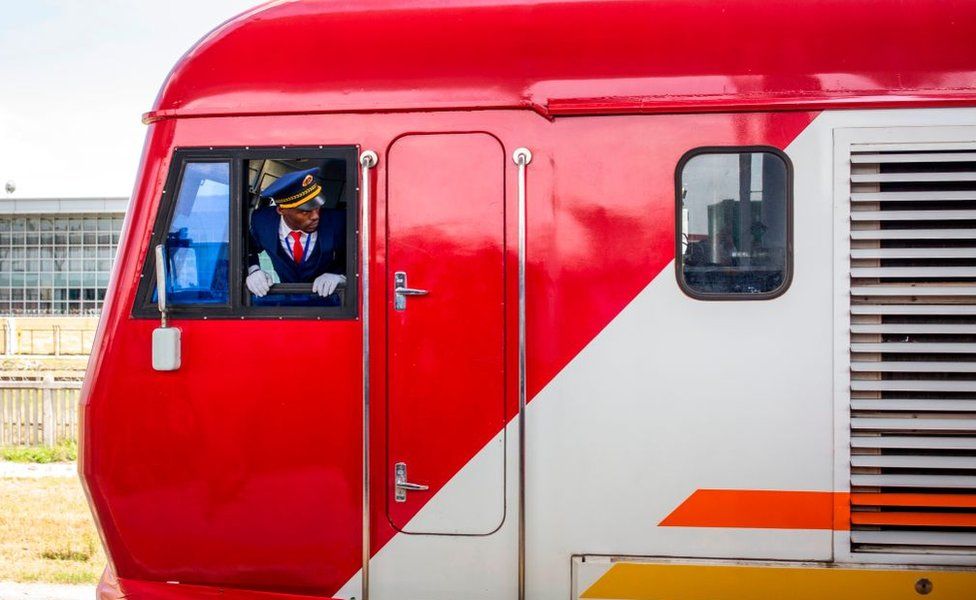8″ April ” 2021 ” https://www.bbc.com/news
In our series of letters from African journalists, Kenyan broadcaster Waihiga Mwaura looks at the anxiety in his country over its growing debt levels.
In many countries the willingness of global institutions, like the International Monetary Fund (IMF), to beef up the state coffers with a loan is seen as a sign of approval.
ADVERTISEMENTS “

It shows that the economists in far-away Washington have confidence that the country can afford and properly manage the interest payments.
But this is not how some Kenyans see things – they do not want the IMF to give the country any more money.
‘Swarm of bees’
The Kenyans on Twitter community – also known as KOT – are a force to be reckoned with.
They have been compared to a swarm of bees who attack in a group and sting repeatedly until the issue is resolved or a bigger issue emerges that distracts them.
Consequently, on Monday, at the tail-end of the Easter weekend, KOT turned their attention to the IMF. Two days previously it had announced a loan of more than $2.3bn (£1.7bn) to support Kenya’s pandemic response and economic reform programme.
The IMF announcement came on the heels of a survey that showed that four out of five Kenyans felt anxious, fearful or angry because of the debt burden.
Hence the Twitter storm and by the end of Monday #StopGivingKenyaLoans was one of the trending hashtags here.

People were also being encouraged to #SignThePetition. This was a reference to an online campaign aimed at urging the IMF to withdraw the offer, with people arguing that previous loans had not been used in a prudent manner.
Finance Minister Ukur Yatani came out to defend the loan, saying that the money was needed to support small businesses and “forestall a greater humanitarian crisis”.
But the masses online are yet to be convinced.
To understand why an IMF loan has failed to impress Kenyans, you have to go back a decade to the introduction of a new constitution.
Four-fold debt growth
It was designed to correct past government abuses. It says that there must be openness, accountability and public participation in how the public purse is managed.
When the current government took over in 2013 public debt stood at $16bn, it is now around $70bn – more than four times as much.
Some of that can be put down to the launching of big infrastructure projects that were sold as game changers, creating jobs and boosting the economy in the long run.
For example the new railway linking the coast to the capital, Nairobi, built with loans from China, was launched to great fanfare in 2017. But there are suspicions that it is operating at a huge loss and the government is not coming clean about the project.
Some of these schemes have also been seen as avenues for corruption.
The debt discussion hit a tipping point in 2018, when an MP on parliament’s budget committee said that the legislature had failed to contain the country’s ballooning debt.
Moses Kuria said that “since 2014, we have sold to Kenyans this romantic story that all is well” – but all was not well.Waihiga MwauraParliament has failed in its job to control borrowing and has approved nearly every request to incur more debt”Waihiga Mwaura
Kenyan journalist
One case of alleged corruption involving former Finance Minister Henry Rotich is currently before the courts.
He is accused of inflating a contract for a public works project by more than $150m. Mr Rotich denies the charges.
Earlier this year, President Uhuru Kenyatta suggested that some $18m was being lost to corruption every day.
Higher debt = higher taxes
Amid all this, parliament has failed in its job to control borrowing and has approved nearly every request to incur more debt. Hence public debt now amounts to around 65% of the country’s annual income – small by richer country’s standards, but Kenya struggles to afford it.
Nevertheless the government wants to take on more debt, but Kenyans know who is going to pay for what they see as state profligacy.
Taxes have already gone up since the tax holiday, introduced because of the pandemic, ended in December. And now there are higher fuel prices.
On top of this, new coronavirus restrictions have affected the ability to make money.
Many here therefore are eyeing the IMF loan with suspicion, thinking it will result in more corruption and more taxation.
It is not clear if the online campaign can change anything but as presidential candidates start campaigning for next year’s election they may have to listen to what ordinary Kenyans are saying about how the state coffers are handled

